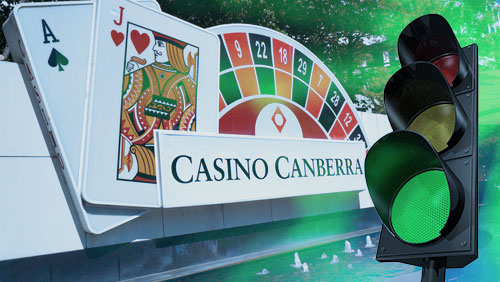Gamblers in Canberra Casino can now play baccarat, roulette and sic bo using individual screens.
 In the past, the Aquis Entertainment-operated casino can only offer rapid roulette as a semi-automated table game, with the rest played as traditional table games. This week, however, saw the ACT government extending the Canberra Casino’s license to finally allow multi-terminal games on its casino floor, The Canberra Times reported.
In the past, the Aquis Entertainment-operated casino can only offer rapid roulette as a semi-automated table game, with the rest played as traditional table games. This week, however, saw the ACT government extending the Canberra Casino’s license to finally allow multi-terminal games on its casino floor, The Canberra Times reported.
Under the extension, the number of Canberra Casino’s number of terminals will more than double from the 22 terminals previously used for rapid roulette to 50 for the multi-terminal games, according to the news outlet.
The casino is required to have a dealer “present at all times” to man the terminals.
The extension comes as the Canberra Casino, which Aquis bought in 2014, is about to undergo a $330 million revamp that will include VIP and mass gaming facilities in addition to hotel and non-gaming facilities.
As part of the casino overhaul, the operator also sought to acquire poker machines through a trading scheme that currently exists among the local clubs that have the machines.
Canberra Casino is the only casino in Australia without a poker machine, but that’s about to change after the ACT government announced back in May that it will offer the casino access to 200 poker machines—lower than Aquis Entertainment’s requested 500 machines.
The offer, however, hinges on the condition that the casino would have to buy existing machines from local clubs, which has been actively opposing Canberra Casino’s bid to operate pokies.
Gwyn Rees, chief executive of Clubs ACT, stressed the community will not benefit from the casino’s machine revenues, telling abc.net.au: “If the casino wants to make their money back… they will need to supercharge their returns and profits, this will mean going aggressively after the local market. This is not money returned to the community… but to a foreign owner.”